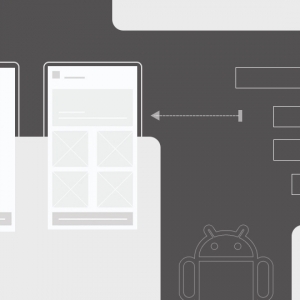In the evolving landscape of technology and business, terms like "digitalization" and "digitization" are frequently used. However, these two terms represent distinct concepts that often get conflated. To make informed decisions about digital transformation, it's vital to understand the key variance between them. Digital transformation consulting can be invaluable in providing clarity on these distinctions.
Digitization: The Process of Converting Analog to Digital
Digitization refers to the process of converting analogue information or processes into a digital format. It involves the transformation of physical data, documents, or manual processes into digital ones. For example, scanning paper documents to create digital copies or converting physical sales records into digital databases are forms of digitization.
Digitization can bring efficiency and accessibility benefits. It simplifies data storage, retrieval, and sharing. However, digitization alone doesn't necessarily result in a fundamental transformation of business operations or the creation of new value.
Digitalization: The Transformation of Processes and Systems
Digitalization, on the other hand, represents a broader and more impactful concept. It involves the use of digital technologies to transform processes, systems, and business models fundamentally. Digitalization seeks to harness the power of technology to improve efficiency, enhance customer experiences, and create new revenue streams.
For instance, a manufacturing company implementing IoT (Internet of Things) sensors to monitor and optimize machinery performance is engaging in digitalization. Similarly, a retail business adopting e-commerce platforms and data analytics to personalize customer experiences is pursuing digitalization.
The Role of Digital Transformation Consulting
Digital transformation consulting plays a vital role in helping organizations differentiate between digitization and digitalization. Consultants assess an organization's current state, identifying opportunities for digitalization that can lead to strategic advantages. They also help craft a roadmap for digital transformation, which includes selecting the right technologies, developing change management strategies, and measuring ROI.
Understanding the distinction between digitization and digitalization is essential for making knowledgeable decisions about where to invest resources and efforts. While digitization is a necessary step toward modernizing processes, it's digitalization that truly unlocks the potential for innovation, growth, and competitive advantage in today's digital age.
In conclusion, while the terms digitization and digitalization are related, they represent distinct concepts with varying implications for businesses. Digital transformation consulting offers the expertise needed to navigate these concepts effectively, enabling organizations to make strategic choices that drive long-term success in the digital era.
Digitization: The Process of Converting Analog to Digital
Digitization refers to the process of converting analogue information or processes into a digital format. It involves the transformation of physical data, documents, or manual processes into digital ones. For example, scanning paper documents to create digital copies or converting physical sales records into digital databases are forms of digitization.
Digitization can bring efficiency and accessibility benefits. It simplifies data storage, retrieval, and sharing. However, digitization alone doesn't necessarily result in a fundamental transformation of business operations or the creation of new value.
Digitalization: The Transformation of Processes and Systems
Digitalization, on the other hand, represents a broader and more impactful concept. It involves the use of digital technologies to transform processes, systems, and business models fundamentally. Digitalization seeks to harness the power of technology to improve efficiency, enhance customer experiences, and create new revenue streams.
For instance, a manufacturing company implementing IoT (Internet of Things) sensors to monitor and optimize machinery performance is engaging in digitalization. Similarly, a retail business adopting e-commerce platforms and data analytics to personalize customer experiences is pursuing digitalization.
The Role of Digital Transformation Consulting
Digital transformation consulting plays a vital role in helping organizations differentiate between digitization and digitalization. Consultants assess an organization's current state, identifying opportunities for digitalization that can lead to strategic advantages. They also help craft a roadmap for digital transformation, which includes selecting the right technologies, developing change management strategies, and measuring ROI.
Understanding the distinction between digitization and digitalization is essential for making knowledgeable decisions about where to invest resources and efforts. While digitization is a necessary step toward modernizing processes, it's digitalization that truly unlocks the potential for innovation, growth, and competitive advantage in today's digital age.
In conclusion, while the terms digitization and digitalization are related, they represent distinct concepts with varying implications for businesses. Digital transformation consulting offers the expertise needed to navigate these concepts effectively, enabling organizations to make strategic choices that drive long-term success in the digital era.





